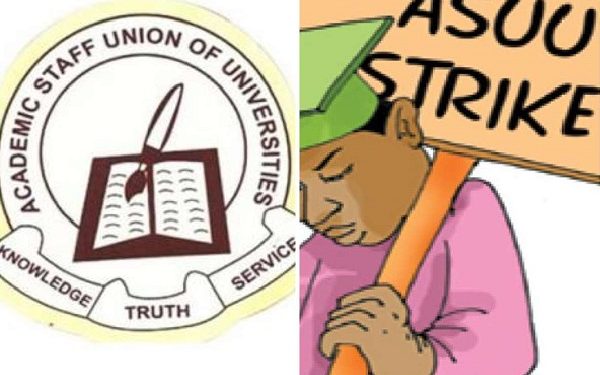The Federal Government has assured Nigerians that public universities would not be shut again over labour disputes, declaring that it will do “everything humanly possible” to prevent further strikes by the Academic Staff Union of Universities (ASUU).
Minister of Education, Dr. Tunji Alausa, told State House correspondents that President Bola Tinubu has given a clear mandate to keep students in school and pursue transparent, data-driven reforms across the tertiary education sector.
“The President has mandated us that he doesn’t want ASUU to go on strike. We are doing everything possible to ensure our students stay in school,” he said.
“The last strike of about six days was not necessary. We have met almost all their demands, and we are back at the negotiation table.”
Alausa said he had earlier briefed the President on ongoing talks with the union and secured further concessions to fast-track a peaceful resolution.
The minister said the administration is committed to deepening accountability in tertiary institutions, anchoring reforms on what he called “evidence-based governance.”
He noted that tertiary institutions receive “almost 100%” of their funding from the Federal Government, underscoring the need for robust oversight.
“If you don’t have data, you are flying blind. You need data to know where the problems are, how to intervene, and how to monitor outcomes,” he stated.
To that end, the government on Tuesday launched the Federal Tertiary Institution Governance and Transparency Dashboard, a digital platform requiring federal universities, polytechnics and colleges of education to publicly report key data such as:
Student enrollment; Personnel and capital allocations;
TETFund and NELFund interventions; Endowments and grants.
The portal, he said, is publicly accessible and will help return Nigerian universities to the global competitiveness they enjoyed 30-40 years ago.
The platform will later include state-owned and private institutions, with the NUC, NBTE and NCCE enforcing compliance.
In a further bid to strengthen governance, the Ministry invited the Director-General of the Bureau of Public Procurement (BPP), Dr. Adebowale Adeokun, to brief heads of tertiary institutions on procurement rules and expectations, signalling tighter monitoring.
Alausa blamed previous instability on fragmented negotiation structures that placed universities, polytechnics and colleges of education under separate committees, often working at cross-purposes.
He revealed that the government has now consolidated the process under a single platform, the Alhaji Yayale Ahmed Federal Government Negotiation Committee, to engage all academic and non-academic unions.
“The same committee is talking to ASUU, ASUP and COEASU. Everything is calm. I spoke to the ASUP president yesterday; there is no ultimatum from any union,” he said.
“This is a listening government, and we will resolve significant parts of their concerns.”
Alausa framed the reforms within broader national economic adjustments, citing achievements from petrol subsidy removal, forex reforms, new tax legislation and major infrastructure projects.









